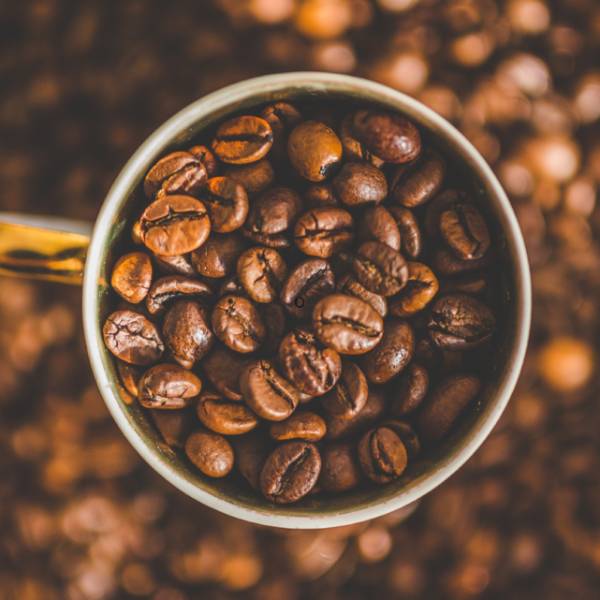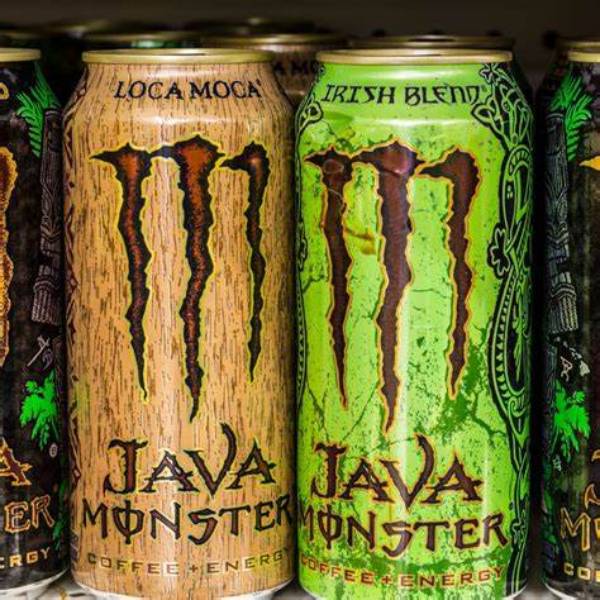Comparing Ingredients: Is Coffee Better Than Energy Drinks?
“Is coffee better than energy drinks?” is a frequently debated question among individuals seeking a caffeine boost to enhance their energy levels and productivity. Understanding the fundamental differences in the ingredients found in these two beverages can help provide a clear answer to this inquiry.

Dissecting the Ingredient Lists
Coffee primarily contains caffeine and antioxidants, offering a relatively simple and natural composition. In contrast, energy drinks encompass a complex mix of ingredients, including caffeine, sugars, artificial additives, and various vitamins. This intricate blend of components sets energy drinks apart from the straightforward nature of coffee.
The Case for Coffee’s Clean Composition
The simplicity of coffee, with its natural composition and lack of excessive additives, often appeals to those seeking a straightforward energy boost without compromising their health. Conversely, the high sugar and artificial additive content found in many energy drinks can pose potential health risks, such as increased risk of obesity, diabetes, and other metabolic issues. Consequently, coffee’s cleaner ingredient list, which primarily consists of caffeine and antioxidants, offers an inherent advantage for health-conscious individuals seeking a safer and more natural source of energy.
Health Benefits: Is Coffee Better Than Energy Drinks?
To determine if coffee is indeed better than energy drinks from a health perspective, it is essential to consider the potential benefits associated with each beverage. Coffee has been well-documented for providing multiple health advantages, making it a compelling option for those seeking a sustainable energy solution.
Rich in antioxidants, coffee helps fight inflammation and supports overall cellular health within the body. Regular consumption of this beloved beverage has also been associated with a reduced risk of certain diseases, including Parkinson’s and Type 2 diabetes, highlighting its potential to have a positive impact on long-term well-being.
Energy Drinks’ Shortcomings in the Health Department
In contrast, energy drinks, despite their marketed benefits and promises of an energy boost, often fall short when it comes to promoting overall health. The high sugar content and presence of artificial ingredients in many energy drink formulations can potentially negate any potential positive effects, rendering them a less desirable choice from a health standpoint. Therefore, when evaluating the health benefits, coffee emerges as the superior choice for individuals seeking a long-term, sustainable energy solution that aligns with their overall well-being goals.
Energy Levels and Sustainability: Is Coffee Better Than Energy Drinks?
Examining the question “is coffee better than energy drinks” from the perspective of sustained energy levels presents a convincing argument in favor of coffee. This beloved beverage offers a distinct advantage in terms of providing a gradual and consistent energy release, ensuring steady alertness without the drawbacks of drastic spikes and subsequent crashes.

Coffee’s Balanced Approach to Energy Delivery
Coffee’s ability to deliver sustained energy can be primarily attributed to its balanced caffeine content. Unlike energy drinks, which often contain excessive amounts of caffeine and other stimulants, coffee provides a more measured dose of caffeine, allowing for a gradual release that sustains energy levels over an extended period.
The Pitfalls of Energy Drinks’ Rapid Energy Spikes
In contrast, energy drinks frequently lead to rapid energy spikes followed by sudden crashes, a phenomenon largely attributed to their high sugar levels and the presence of other stimulants. These drastic fluctuations in energy can disrupt daily productivity, impair focus, and potentially impact overall wellness. Consequently, when it comes to sustaining energy levels throughout the day without the undesirable side effects of crashes and jitters, coffee proves to be a more reliable and consistent choice compared to energy drinks.
Mental Focus: Is Coffee Better Than Energy Drinks?
Mental focus is another critical aspect that must be considered when addressing the question “is coffee better than energy drinks?” Coffee consumption has been shown to enhance cognitive function, improving focus, memory, and reaction times. The natural caffeine present in coffee stimulates the central nervous system without overwhelming it, providing a gentle boost to mental alertness.
Coffee’s Balanced Stimulation for Optimal Focus
While energy drinks also promote alertness, they may come with drawbacks such as jitteriness and anxiety due to their higher caffeine and sugar content. These undesirable side effects can potentially hinder mental focus rather than enhance it, making it challenging to maintain a state of concentrated productivity.
A More Balanced Approach to Mental Clarity
In contrast, coffee offers a more balanced approach to maintaining mental clarity. By providing a moderate and consistent level of stimulation, coffee allows individuals to experience improved focus and cognitive performance without the disruptive effects that can accompany the overconsumption of caffeine and other stimulants found in many energy drinks. Thus, when it comes to optimizing mental focus and cognitive function, coffee emerges as a superior choice due to its ability to deliver a more measured and sustainable boost.
Economic and Environmental Impact: Is Coffee Better Than Energy Drinks?
Coffee stands out as a more economical option compared to energy drinks. When purchased in bulk quantities, coffee beans or grounds offer substantial savings. Additionally, brewing coffee at home eliminates the added costs associated with pre-packaged beverages. This cost-effectiveness becomes especially apparent over time, making coffee a budget-friendly choice. Moreover, the reusable nature of coffee mugs and brewing equipment further contributes to cost savings. Buying coffee beans or grounds in bulk saves money. Home-brewing coffee cuts costs compared to pre-packaged drinks. Reusable mugs and equipment make coffee a budget-friendly choice.

Sustainable Practices in Coffee Production
Choosing sustainable coffee brands supports eco-friendly practices throughout the supply chain. Fair trade certification ensures that coffee farmers receive fair wages and decent working conditions. Organic farming methods, on the other hand, avoid the use of harmful synthetic pesticides and fertilizers. This not only promotes environmental conservation but also contributes to the well-being of farmers and their communities. By opting for sustainable coffee, consumers actively support responsible and ethical practices.
Environmental Impact of Energy Drinks
In contrast, energy drinks often come in single-use cans or plastic bottles. This packaging contributes significantly to environmental waste and pollution. Furthermore, the production processes involved in manufacturing energy drinks are typically more energy-intensive and carbon-intensive. This higher energy consumption and larger carbon footprint further exacerbate the environmental impact of these beverages. Consequently, choosing coffee over energy drinks can be a more environmentally conscious decision. Worst Energy Drinks for You come in single-use packaging, contributing to pollution. Their production is more energy and carbon-intensive. Choosing coffee is a more environmentally conscious decision.
Personal Preferences and Lifestyle: Is Coffee Better Than Energy Drinks?
Finally, individual preferences weigh heavily in the “is coffee better than energy drinks” debate. Coffee offers versatility, with various brewing methods and flavor profiles catering to diverse tastes. From espresso to cold brew, coffee fits seamlessly into various lifestyle routines.
Energy drinks, while convenient, offer limited flavor options and often contain artificial tastes. Additionally, the ritual of preparing and drinking coffee can provide a comforting routine, enhancing the overall experience. For those seeking both enjoyment and an energy boost, coffee generally proves more satisfying. 7 Brew Energy Drinks offer limited flavors with artificial tastes, unlike coffee. Coffee preparation provides a comforting routine, enhancing enjoyment. For satisfaction and energy, coffee excels.
In conclusion, answering the question “is coffee better than energy drinks” involves multiple considerations, from ingredient simplicity and health benefits to sustained energy and environmental impact. Coffee consistently demonstrates advantages across these aspects, making it a superior choice for those seeking a balanced and holistic energy solution. Evaluating personal preferences further supports coffee’s prominence as the go-to option for daily rejuvenation.